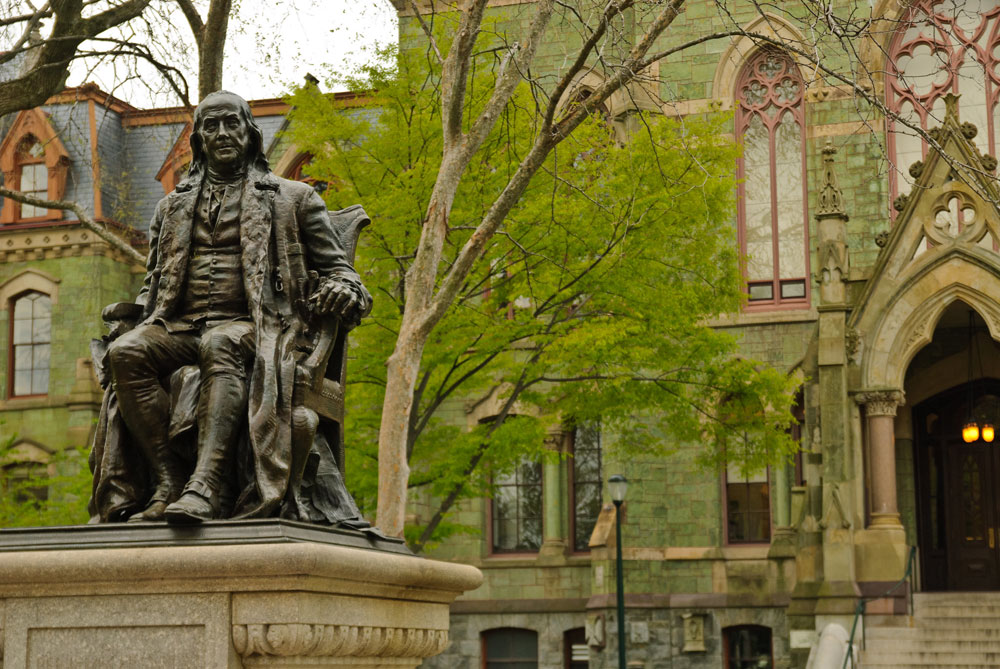
July 23, 2020; Next City
“At the University of Pennsylvania [Penn], a growing group of faculty and staff are for the first time issuing a collective call for the Ivy League institution to eschew its privilege as a tax-exempt nonprofit and start paying at least part of what it would otherwise owe in property taxes annually to Philadelphia’s chronically underfunded public school system,” reports Oscar Perry Abello for Next City.
Penn historian Amy Offner tells Abello that, “The call really gathered strength this spring because of urgent fiscal crisis tied to COVID-19, and it became even more urgent with calls for racial equity.” To date, Abello reports, 730 faculty and staff have signed on to the campaign.
The activist group, called Penn for PILOTs, demands that Penn enter into an agreement to make “payments in lieu of taxes,” or PILOTs, directly to a fund that would benefit city public schools, where 52 percent of students are Black and 21 percent are Latinx. By contrast, 7.8 percent of Penn undergraduates are Black and 10.2 percent are Latinx; as for faculty, 3.9 percent are Black and 4 percent Latinx.
According to Offner, the petition started circulating among Penn faculty and staff in June. Others supporting the campaign include students, local Philadelphia parents, public school teachers, and labor organizers.
Offner says she is surprised by the level of support generated among Penn staff.
“We’re living in a time of rising expectations, with many people being involved for the first time. Some of us are people who study urban inequality, racial inequality, with scholarly expertise in these issues, and some are parents of public school children, graduates of public schools, or former public school teachers,” Offner tells Abello.
Sign up for our free newsletters
Subscribe to NPQ's newsletters to have our top stories delivered directly to your inbox.
By signing up, you agree to our privacy policy and terms of use, and to receive messages from NPQ and our partners.
Penn, writes Abello, has never paid PILOTs, aside from a brief period lasting from 1995 to 2000. Among the eight Ivy League institutions, Abello writes that only Penn and Columbia in New York City do not currently have PILOT agreements in place with their local government. Columbia, however, did agree to a community benefits agreement with a local community development corporation that involves more than $120 million in spending commitments.
For its part, Penn has often contended that because, unlike many other cities, Philadelphia has a wage tax, the university contributes to city coffers indirectly through that mechanism and therefore PILOT payments are not needed. Penn also touts its overall commitment to community engagement.
At the same time, it is beyond dispute that Philadelphia, with the nation’s eighth-largest public-school district, educating an estimated 203,000 students—81 percent of whom live in poverty—and a budget of approximately $3.2 billion, could use a helping hand. A report by Pew Charitable Trusts in 2015 noted that Philadelphia trailed Boston, Milwaukee, Cleveland, New York, Baltimore, Chicago, and Detroit in per-pupil funding. A Philadelphia Inquirer article in 2019 identified 26 high teacher turnover schools within the district; at these schools, greater than 25 percent of teachers left annually, with great harm done to students’ educational progress as a result.
Meanwhile, Penn notes that its endowment stood at $14.7 billion as of June 30, 2019. Of its student body, in 2017 the New York Times reported that 18.7 percent of Penn students come from households earning $630,000 or more (top one percent), while only 16.5 percent come from households earning $65,000 or less (the bottom 60 percent).
A regular financial contribution from Penn would not end the poverty of Philadelphia school children nor raise the education levels of Philadelphia public school students to Penn levels. However, there is little doubt that it would make a positive difference.
Not so long ago, NPQ’s Ruth McCambridge, writing about PILOTs and the nonprofit sector, noted that the “social contract is ours to break.” In other words, nonprofits are tax exempt due to their public support; if a nonprofit institution is elite and the surrounding community has genuine need, then it is incumbent on that institution to “recompense the surrounding community for an agreed-upon proportion of what the institution would have owed in tax payments were they on the rolls.”
“Not to do so,” McCambridge adds, “will continue to feed resentment based on perceptions of commonsense fairness” and risks eroding community support for nonprofits overall.—Steve Dubb













